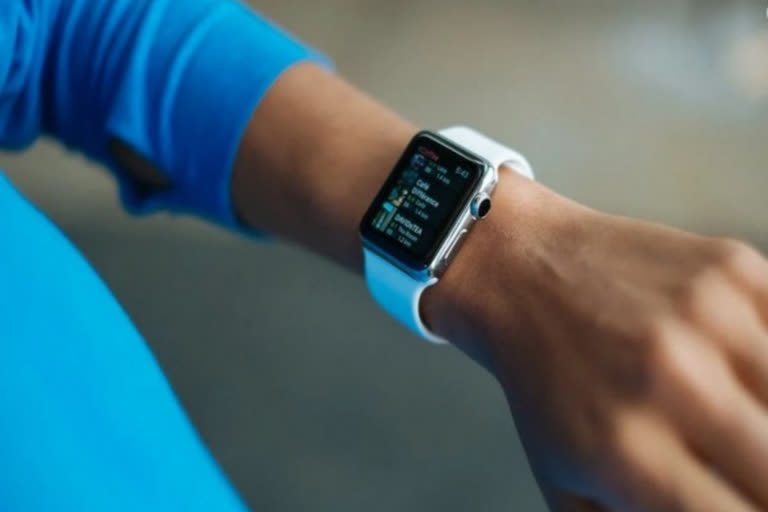Washington: Researchers have developed a wristwatch-like wearable device to enhance the effects of prolonged exposure therapy, a common, evidence-based treatment for patients with Post-Traumatic Stress Disorder (PTSD). As a wearable device, called Bio Ware, the Bio Ware system includes a discreet button-shaped camera attached to the patient's clothing, a watch-sized tool around their wrist and a Bluetooth headphone in their ear, so their therapists can virtually be with them in the experience or situation that causes them stress, the study said.
The clinician can see immediate recordings of the patient's heart rate, breathing and emotional distress, and they can guide them through the experience by either pushing them to do more or pulling them back to do less, to optimize the in vivo exposure, the study said. The team of researchers at Medical University of South Carolina (MUSC) Health worked with a medical device company Zeriscope to test the device. The results have been published in the Journal of Psychiatric Research.
Sights, smells and sounds of everyday life can supply the triggers that take someone with PTSD right back to the scarring scene they're trying to forget. With PTSD, a honking horn, a crowded coffeehouse or a sharp scent can bring back traumatic memories that can raise the heart rate, increase muscle tension and lead to anxiety and depression. These reactions occur even without the presence of danger, but they pose their own threat by causing strains on relationships at home and work, igniting the need to avoid certain situations and contributing to mood changes.
PTSD can happen to anyone at any age, according to the National Institutes of Health, US, and treatment options include medications as well as therapy. And with between 11 and 30 per cent of veterans experiencing symptoms of PTSD, the research team looked at using Bio Ware with service members at the Ralph H. Johnson VA Medical Center, US Department of Veterans Affairs (VA), US, specifically. With in vivo exposures, which are a key component of prolonged exposure therapy, patients are tasked with putting themselves in safe but uncomfortable or triggering situations outside of their therapy sessions, as a form of homework.
Also read: Study: Chronic exposure to low levels of blast may be associated with neurotrauma
If they have a fear of crowded spaces, for example, their therapist may ask them to go to the grocery store at a busy time and then share their reaction at the next therapy session. If the service member is stressed by loud spaces and avoids them, their therapist may send them to a loud sporting event, for example, in an effort to help them learn to feel more comfortable in those situations and not have to avoid them in the future.
When done properly, in vivo exposures have proven successful and helpful to patients, but with so much relying on the patient and their interpretation of their own stressors, Sudie Back, a professor in the department of psychiatry at MUSC Health and principal investigator for the NIMH-funded study, sees room for error.
"What I find so exciting about this new Bio Ware device is that when used alongside evidence-based, exposure treatment methods for PTSD, we've seen significantly better results for our patients," said Back. Back and her team saw significant decreases in both PTSD and depression symptoms with their patients who used the new technology, the study said.
According to Back, "This is the first time, to my knowledge, that we've been able to virtually go with patients during their in vivo exposures and have instant access to their physiological data in the moment to really help them get the most out of those exercises, which I believe will translate into them seeing significant reductions in their PTSD symptoms."
Bill Harley, the co-founder and CEO of Zeriscope, compares it to working out on your own versus with a personal trainer. "Communicating with patients while simultaneously seeing their biophysics is incredibly helpful," he said. "A lot of healing happens in the in vivo exposures, and Bio Ware enriches that experience." (PTI)



